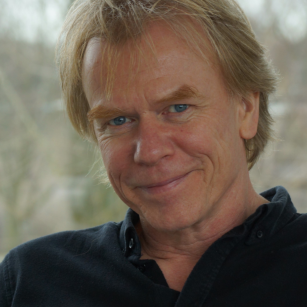There is still not enough knowledge about the underlying causes to be able to better treat anxiety disorders and chronic insomnia. Eus van Someren and his research team want to change this. Van Someren has been fighting for years for the better treatment of insomnia and has made the Netherlands the international leader in the field of fundamental research into insomnia.

“There is also a strong overlap in experienced complaints. People feel tense, stressed, 'hyper'. This is also measurable in the activity of the brain and other organs. Overcoming these unbearable symptoms can be done better if we do not artificially separate day and night", says Professor Eus van Someren.
Prestigious grant
To achieve better treatment, the European Research Council (ERC) of the European Commission made the exceptional decision to award its most prestigious grant, the 'ERC Advanced Grant' to Van Someren for the second time. His research team has been trying for years to improve treatment of insomnia and to prevent its adverse consequences for mental health. Their discoveries have made the Netherlands the international leader in the field of fundamental research into insomnia.
Together with patients
Via slaapregister.nl, - a Dutch website for recruiting volunteers for sleep research - his team is looking for research participants who, in addition to their poor sleep, also have complaints of anxiety, stress or emotion regulation. Thousands of people can contribute to the research by filling in questionnaires. Hundreds of them can also take measurements of their brain activity before, during and after sleep in the comfort of their own bed. Treatments will also be tried out, including innovative medication. Van Someren expects that people will find it easier to control their anxiety and post-traumatic stress symptoms if they sleep better.
Van Someren: "From my many conversations with patients, psychologists, psychiatrists, somnologists and researchers, I have noticed time and again how difficult it apparently is to get past pigeonholing. Being 'upset' always includes a whole range of things that are not going well, physically and emotionally. For better understanding and treatment, we really need to leave pigeonholing behind. I am very happy that, thanks to this grant, my fantastic team can make great strides in achieving this.
European Research Council
The European Research Council (ERC) is part of the European Commission. The ERC awards grants for pioneering research to a select number of excellent scientists. It is exceptional that Van Someren has now been awarded this most prestigious grant for the second time. His previously awarded project (2015) has yielded many innovative and applicable insights. Thanks to that project, we now have a better understanding of why insomnia can lead to depression and how we can prevent it.
Eus van Someren and his team work at the Vrije Universiteit Amsterdam, Amsterdam UMC, and the Netherlands Institute for Neuroscience, he is affiliated with Amsterdam Neuroscience research institute.
Photography: VU Amsterdam
